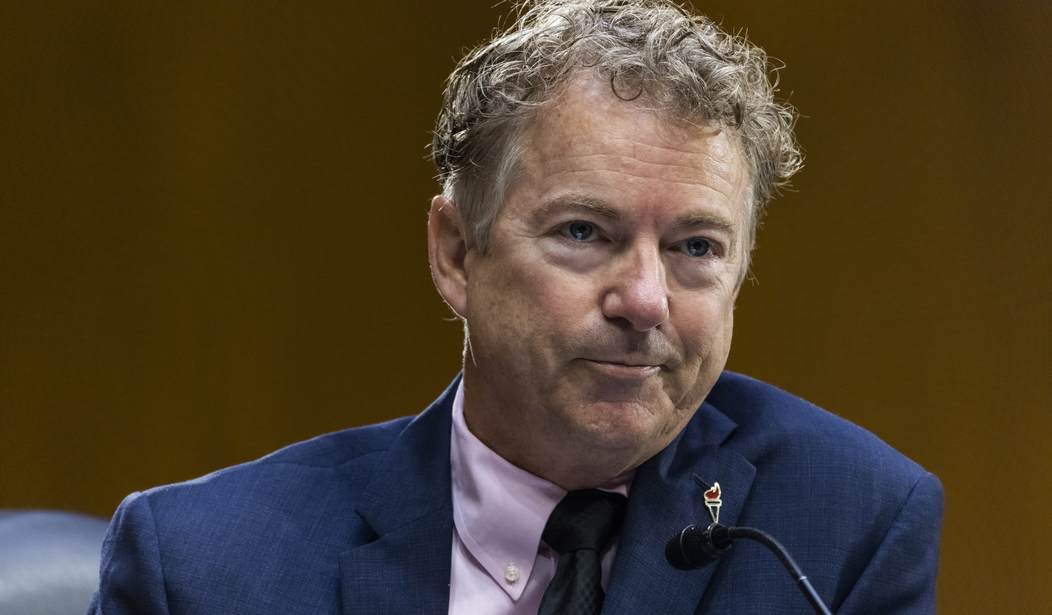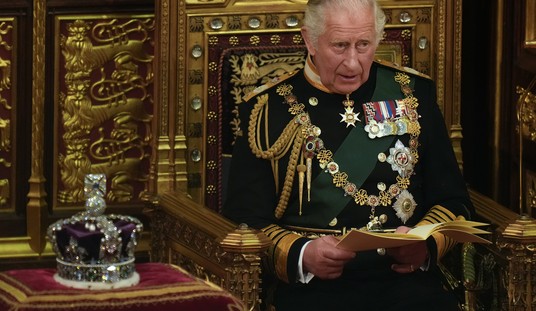A must-read from the Times reporting on two new studies that purport to answer one of the most pressing questions of the pandemic. How long does immunity last?
If you’ve had COVID and recovered, or if you haven’t had COVID but have been vaccinated, when do you need to start worrying about your risk of infection again?
According to the studies, not for a year. Or maybe not ever. It’s possible that immunity lasts a lifetime, which would obviate the need for boosters.
Does this mean … Rand Paul was right? Last week he said that he has no plans to be vaccinated, having recovered from a mild case of COVID 13 months ago. Scientists criticized him for that, warning that there was no reason to think his natural immunity would last indefinitely. Now suddenly here’s evidence that his protection from the virus may be stronger than those scientists thought.
I think he’s half-right. Yes, natural immunity looks solid, at least for 12 months. Vaccine immunity does too. But natural immunity plus vaccine immunity? You might as well walk around in a cape and tights.
[M]emory B cells produced in response to infection with SARS-CoV-2 and enhanced with vaccination are so potent that they thwart even variants of the virus, negating the need for boosters, according to Michel Nussenzweig, an immunologist at Rockefeller University in New York who led the study on memory maturation.
“People who were infected and get vaccinated really have a terrific response, a terrific set of antibodies, because they continue to evolve their antibodies,” Dr. Nussenzweig said. “I expect that they will last for a long time.”…
A year after infection, neutralizing activity in the participants who had not been vaccinated was lower against all forms of the virus, with the greatest loss seen against the variant first identified in South Africa.
Vaccination significantly amplified antibody levels, confirming results from other studies; the shots also ramped up the body’s neutralizing ability by about 50-fold.
The Times story is complicated and technical and hard to summarize, so read it in full. But here’s my stab at a nutshell version: Although antibodies from natural or vaccine immunity fade within months, a certain amount of what’s known as “memory B cells” persist in the bone marrow. B cells “remember” what caused them to be made in the first place, be it the coronavirus itself or the spike protein generated by the vaccine, and can crank out new antibodies rapidly if they detect the presence of the virus or spike protein again in the future. (Neutralizing antibodies, the important ones, appear to endure in the blood for six to 12 months.) Not only that, according to one study B cells continue to evolve inside the marrow, making antibodies they produce in the future potentially capable of neutralizing new variants of the virus or spike protein as well.
The studies found that B cells remained effective and actually strengthened over time in most subjects who’d been infected with the virus over 12 months. That’s at least a year of protection via natural immunity, then, and possibly much more.
So which is best, Paul-style natural immunity or vaccine immunity? They each have their upsides and downsides, per the Times. People who’ve been infected retain a “memory” of the whole virus, not just the spike protein, and their immune response should be more “mature” if they were infected many months ago relative to recently vaccinated people. On the other hand, as you’ve already read in the excerpt above, neutralizing antibodies in people who are naturally immune seem to decline over a year. And, ominously, not every subject in the study who’d been infected with the virus developed B cells. Most did, even after mild bouts with COVID, but if you’re one of the unlucky ones who didn’t, potentially you’re vulnerable to reinfection.
The study authors seem to think the takeaway is clear: If you’ve recovered from COVID you should still get vaccinated, as then you’ll have a huge supply of diverse antibodies and B cells that should protect you for long enough that you won’t even need a booster this fall. People who’ve been vaccinated but have never had the disease probably will need boosters. People who’ve been infected but not vaccinated, like Paul, are trusting that whatever B cells they produced during recovery will still be equal to the task against the virus more than a year later.
Of course, the more of us who get vaccinated, the less virus there’ll be in the community, and the less anyone needs to worry about questions like “How long does immunity last?”
A big bellwether milestone for the US pandemic
The lowest death rate since March 30, 2020 pic.twitter.com/ShL6Jb9o1L— Eric Topol (@EricTopol) May 26, 2021
The U.S. is averaging under 25,000 cases today for the first time since mid-June 2020, a moment when testing was much harder to come by than it is now. Only two states have an infection rate over 1.0, the threshold at which the virus is spreading rather than diminishing. Israel, with a higher share of the population that’s fully vaccinated, is doing even better:
Israel: Constant decline for 4 straight months
Since mid-Jan peak:
99.7% fewer cases (now ~0.3 daily cases per 100,000)
99% fewer critically ill (now ~0.02 daily per 100,000)
98.5% fewer deaths (now ~0.004 daily per 100,000)Waiting for the world to vaccinate and catch up pic.twitter.com/bNcXcmLirg
— Eran Segal (@segal_eran) May 25, 2021
They’re averaging around 30 cases per day now in a population of some nine million people. The vaccines are working better than anyone hoped.








Join the conversation as a VIP Member